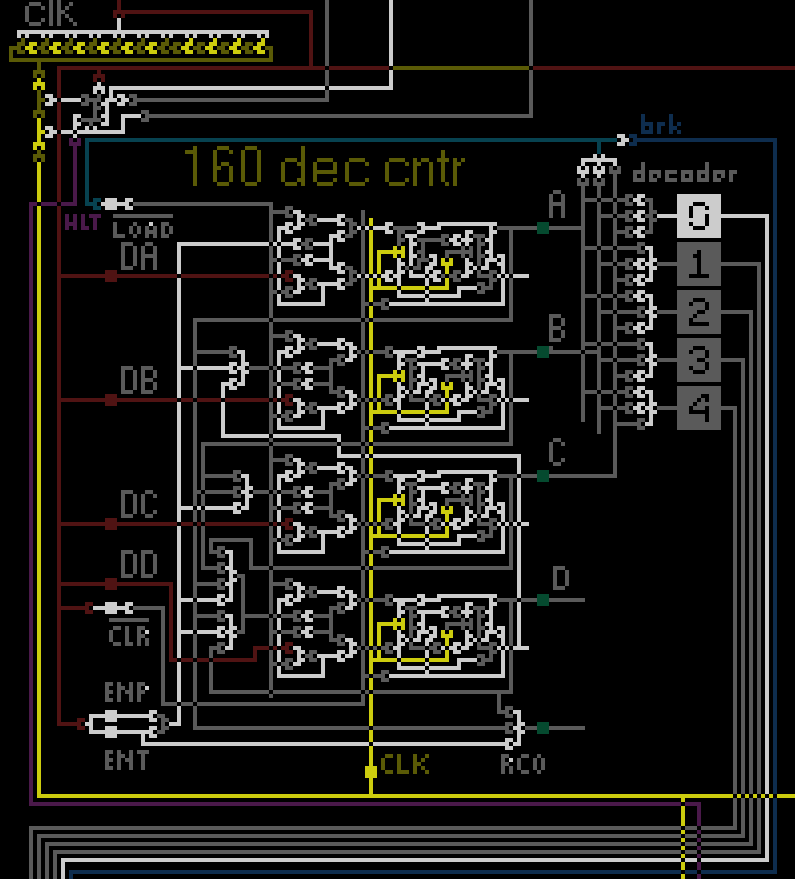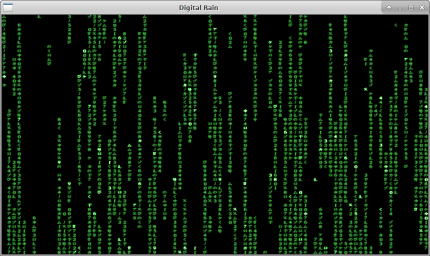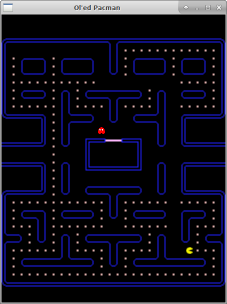Small,
`___` Embeddable
(O,O) and
\) ) purely
---"-"--- Functional!
O t u s L i s p
Based on Aki Helin's Owl-Lisp
Otus Lisp (Ol in short) is a purely functional dialect of Lisp.
Ol implements an extended subset of the R7RS Scheme (PDF), including but not limited to some SRFIs. It's tiny (~ 64KB), embeddable, and cross-platform; provides a portable, high-level interface to call code written in another language (c, python, lua, etc).
You can use Ol in Linux, Windows, macOS, Android, Chromebook*, (Open/Free/Net) BSD, Solaris and other operating systems based on various hardware architectures (intel, arm, ppc, mips, etc).
Also, Ol is ported to the web (in WebAssembly form) and can be used in Chrome, Safari, Firefox, Edge, Opera, etc.
- credits to: the-man-with-a-golden-mind (ideas, usage, lot of tests), nullscm (usage, tests), Odysseus (tests, ideas, math corrections), mt (tests, ideas).
- note: please check the differences between Ol and Scheme R7RS.
CentOS, Debian, openSUSE, RHEL, SL, SLE, Ubuntu, Univention precompiled packages: OpenSUSE Build Service.
Some additional libraries can be installed using 'kiss' package manager. Usage instruction available at ol-packages repository.
-
Q. Some folders are empty (i.e. "libraries/OpenGL"), is it ok?
A. Yes, it's ok. Some parts of Ol project are separated into their own independent repositories.
Usegit clone --recursiveto get a full project. Orgit submodule init; git submodule updateto update existing one. -
Q. Why no arrow keys processing and a history in Ol command line?
A. For the gods of simplicity. I recommend to use an rlwrap tool
(run asrlwrap olin terminal, or add analias ol="rlwrap /usr/bin/env ol"line to your ~/.bashrc and run as justol). -
Q. .. fatal error: stdlib.h: No such file or directory.
Q. .. fatal error: bits/libc-header-start.h: No such file or directory.
A. Install gccmultilib, i.e. sudo apt install gcc-multilib. -
Q. You reference to licenses MIT and LGPL. Can I freely choose between these two licenses?
A. Yes, you are free to choose an MIT or LGPL license. -
Q. I want to run Ol in a venv (Virtual ENVironment). Can I?
A. Yes. Use--home=yours-venv-foldercommand line option (more about venv).
Additionally, you can embed such a venv into the Ol executable itself (the portable form). -
Q. Anything else interesting?
A. Yes, Ol provides simplest HTTP web-server for sharing a local folder over an inter/intra-net.
Just typeecho ,load http/server| olin command line (or,l http/serverinside Ol session),
changeoltool - --port 8080to use the custom port. -
Q. Why do you call the characters not "characters" but "runes"?
A. Because they are runes - letters in a wide set of alphabets :) -
Q. Do you have something like "sleep mode"?
A. You can store the current REPL session with,save "filename", just run laterol filenameto continue saved session. -
Q. I'm lost in prefix math notation, can you help me?
A. Ol has a special math library that provides infix math notation. Use the(math infix-notation)library.> (import (math infix-notation)) > (print (infix-notation 1 + 2 * 3 - sqrt(4) )) 5 ; '\\' is a short for infix-notation > (print (\\ 1 + 2 * 3 - sqrt(4) )) 5 ; you can view result of transformations with ",expand" > ,expand (\\ 1 + 2 * 3 - sqrt(4) ) (- (+ 1 (* 2 3)) (sqrt 4))
Join the online gitter.im chat. Alternatively the Libera.Chat #otus-lisp (alternate lightweight web-client) channel is available (the previous Freenode channel is closed).
The Issues github page waiting for your bug reports and issues.
- Build/Install
- Packaging
- Running
- Language Reference
- Deprecations
- Hacking
- Lisp sources in binary form
- Files, Docs
- License
- GCC 3.2+ / CLANG 3.5+
- GNU MAKE
$ make
Advanced build instructions: doc/BUILD.md
$ ./ol
Welcome to Otus Lisp 2.5.1
type ',help' to help, ',quit' to end session.
>
The Ol binary includes a rich set of features (lists, vectors and bytevectors, ansi and unicode strings, infinite precision math, associative arrays aka "ff"s, i/o streams, lazy evaluations, regular expressions, continuations, exceptions, lexer parsers, async functions and actors, etc.) and can be used as a completely standalone.
$ sudo make install
Note: by default used /usr/bin/ol for Ol binary, and /usr/lib/ol/ for Ol libraries.
$ sudo make uninstall
The Otus Lisp language is based on Scheme R7RS (PDF) with minor changes and useful extensions.
You can find Ol samples at:
- Standard procedures list (under construction).
- RosettaCode Ol page.
- Samples and Tests repository folders.
- Embed usage sample available as toy pacman game sample.
- Android sample available at android sample.
For example:
-
"LogicWire" and "Digital rain" samples demonstrates native libraries direct usage (the OpenGL):
-
"Pacman" sample demonstrates embedding Ol scripts in native "C" code - https://github.com/yuriy-chumak/ol/tree/master/samples/pacman
- "Newton dynamics" sample demonstrates extended native libraries usage (the newton-dynamics, physical simulation engine) with callbacks (C to Lisp automatic translation) - https://github.com/yuriy-chumak/ol/tree/master/samples/Newton. You should have compiled newton-dynamics.so core library.
The most important differences are:
- Ol is definitely case sensitive.
- Numbers WITHOUT PRECISION considered to be exact in Ol, but inexact in Scheme.
integer?for inexact numbers always returns #false in Ol.
- No
set!in Ol (Ol is purely functional!),- note: Use
defineinstead. - note: Limited support of
set-car!,set-cdr!, andset-ref!functions are provided. - note: Dynamic variables are available via
(scheme dynamic-bindings)library.
- note: Use
- CHARACTERS in Ol are small numbers (aka 'enums'), but with special character type in Scheme.
- note: Ol supports the full Unicode 15.0.0 (2022 Sep 13) character set.
- note: To write a character use
write-char, otherwise you'll write a number.
- NEGATIVE indices in
substringare valid in Ol (means "from the end of string"). - NEGATIVE vector indices are valid in Ol (means "from the end of vector").
- Ol has extended form of
case(with vectors support), - Ol has extended form of
if(withthenandelsekeywords, - Ol has builtin dictionary numeric and symbolic keys,
- Ol has builtin regular expressions,
- Ol has an awfully powerful macro system in addition to Scheme's hygienic one.
The full list can be read in doc/R7RS-DIFFERENCES.md.
Some Ol limitations:
applyarguments count is limited to 256 in Ol (usefoldotherwise).
- srfi-0 -
cond-expand, builtin - srfi-16 -
case-lambda, builtin - srfi-71 -
(let* ((a b (values.., builtin - srfi-87 -
<=incase, builtin
- 2.4 -> 2.5
- feature
ol-2.4`` changed tool-2.5`. (system args port...)changed to(execvp args port...). New(system command)introduced.(OpenGL version-X.Y)libraries changed to(OpenGL X.Y).fft-size-tchanged tofft-size_t.HAS_...build variables changed to convenientHAVE_....
- feature
- 2.3 -> 2.4
(ilist ...)is deprecated. Use(cons* ...)instead.(interact ...)from (owlinteropasync) is deprecated. Use(await (mail ...))instead.(fork ...),(fork-named ...),(fork-server ...)is deprecated. Use(async ...),(async 'name ...),(actor ...)instead.
Ol contains built-in tool for inspecting the Otus Lisp language.
You can use the REPL ,expand command to expand high-level Ol instructions into low-level (core) Otus Lisp.
> ,expand (assert (+ 1 2) = 3)
'(ifeq (equal? ((lambda (g1) g1) (+ 1 2)) 3) #true #true (runtime-error "assertion error:" (cons (quote (+ 1 2)) (cons "must be" (cons (quote 3) '())))))You can use the REPL ,disassembly (or ,dis, or ,d) command to disassemble Otus Lisp functions to the Ol virtual machine instructions.
> ,dis (lambda () 1)
type: bytecode
code: (11 1 0 5 14 1 4 24 4 17)
disassembly '(length command . args):
(4 JAF 1 0 5)
(3 LD 1 4)
(2 RET 4)
(1 ARITY-ERROR)
> ,dis (lambda (x y) (+ x y))
type: procedure
code: #((11 3 0 7 1 1 2 6 2 6 3 17) #<+>)
disassembly '(length command . args):
(4 JAF 3 0 7)
(4 REFI 1 2 6)
(3 GOTO 6 3)
(1 ARITY-ERROR)You can use basic Ol functionality without any installation - just copy the ol (ol.exe for Windows) binary to any user-accessible path.
Basic functionality includes a rich set of features: lists, vectors and bytevectors, numbers math with unlimited accuracy, strings, associative arrays (named ff), i/o streams and files, lazy calculations, regular expressions, asyncs and actors, etc.
Advanced functionality (i.e. OpenGL support) requires a complete installation of the Ol package:
- You can use precompiled binaries and/or installation packages that can be found at the Releases announcement page.
- or You can manually copy required libraries to your OL_HOME or current directory,
Ol command line is:
ol [options] [filename] [arguments]
- if no filename given ol will use stdin as source
- if you want to use stdin as source but must provide an arguments, use "-" instead
- i.e.
echo '(print *vm-args*)' | ol - arg1 arg2
- i.e.
- if you want to break vm-options scanning and provide filename like option (i.e. '--version' as a real file name), use "--" for 'end-of-option' flag and then a filename
- i.e.
echo '(print *vm-args*)' > --version; ol -- --version arg1 arg2 arg3
- i.e.
Olvm command line options available:
-v: print olvm version then exit--version: print olvm version and licensing information then exit
Ol command line options available:
-v: print ol version then exit--version: print ol version and licensing information then exit--version=...: overwrite ol version string--home=...: overwrite path where to search for the ol libraries--sandbox: enable execution in the sandbox (if OS supports)--sandbox=...: execution in the sandbox with "..." Megs of memory preallocated--interactive: force REPL interactive mode--no-interactive: disable REPL interactive mode--embed: run special reduced REPL for embed usage--: end-of-options sign
Ol can be executed interactively or in the unattended mode.
$ ol
Welcome to Otus Lisp 2.2,
type ',help' to help, ',quit' to end session.
; now you in REPL and can play with in
> (+ 1 2 3)
6
; or let's make some factorial calculations?
> (let factorial ((n 17))
(if (= n 0)
1
(* n (factorial (- n 1)))))
355687428096000
; this ends interactive session
> ,quit
bye bye :/GNU/Linux, Unixes, *BSDs, macOS, ...
$ ol scriptname.ol # text script
$ ol scriptname.bl # binary (compiled) script
$ echo '(print (+ 1 2 3))' | olWindows:
> ol scriptname.ol
> ol scriptname.bl
> echo (print (+ 1 2 3)) | olOL can execute precompiled scripts. You can compile your script using this code:
(define (main . args)
(print "hello !")) ; anything you want to compile
(fasl-save main "out.bl")where "out.bl" is your binary output file name. This code creates binary script that can be executed directly by ol or vm:
$ ./vm out.bl
hello !
$ ./ol out.bl
hello !❗ Note: Since version 2.2.1 Ol supports "constructors" - functions that are automatically executed when loading the source. This is experimental feature with no name yet, but feature is tested and will be presented as a normal feature in the next build.
Constructors are called in "use" order. The order of independent constructors is undefined. If you want to specify the order of such constructors, create a function that uses them as variables in the correct order.
So, starting from version 2.2.1 you should do:
(define (main . args)
(print "hello !")) ; anything you want to compile
(fasl-save (vm:new 63 main) "out.bl")A virtual environment is an Ol environment such that the libraries and scripts installed into it are isolated from those installed in other virtual environments and your operating system.
Use --home=folder or --home=folder1:folder2:...:folderN Ol command line option, where ':' is a folder divider. Folder names '.' and '..' are allowed.
These folders are linked to the Ol's *path* global symbol and can be used and changed at runtime freely.
repl- the compiled ol binary interpreter/compiler (olvm bytecode)src/olvm.c- the ol virtual machine source code (C)includes/ol/ol.h- the common ol header (C, not required, just for use as embed)includes/ol/vm.h- the ol virtual machine header (C, not required, just for use as embed)extensions/ffi.c- FFI implementation (C)lang/*.scm- ol repl and compiler source codes (Lisp)libraries/**.scm- various OL libraries (Lisp):libraries/scheme/core.scm- r7rs core implementationlibraries/owl/*.scm- legacy basic librarieslibraries/lib/*.scm- external native library mappings- etc.
tests/**- some basic automation tests (Lisp, C, Txt)tests/rosettacode/*.scm- additional automation tests (Lisp), described at the Rosetta Code programming chrestomathy site.
Please refer to the embedding sample README.
Please refer to the project page or check the source codes - libraries/scheme/core.scm
Otus Lisp is available under 2 licenses: MIT License and GNU (L)GPLv3 License.
Copyright (c) 2011-2014 Aki Helin
Copyright (c) 2014-2023 Yuriy Chumak
Grew out of the Owl Lisp by Aki Helin: https://gitlab.com/owl-lisp/owl
Thanks to:
- the-man-with-a-golden-mind for the tests, ideas, and questions.
Resources:






